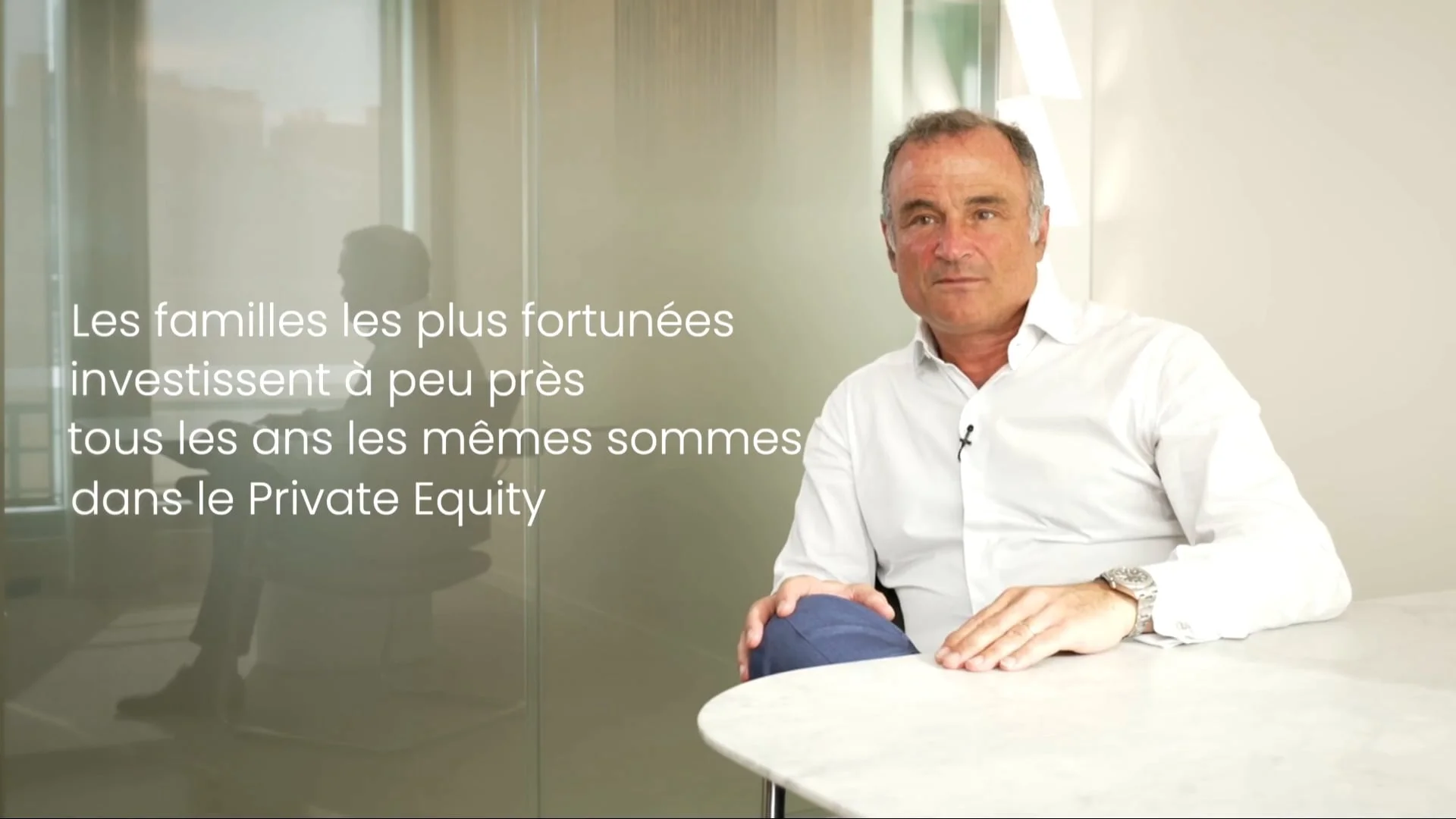Is now the right time to invest in private equity?
Summary
Written transcription
Frederic Stolar: I'm often asked, Frédéric, is now a good time to invest in private equity? In a way, it's the fundamental question of market timing. Is there such a thing as market timing in the world of private equity? The answer is no. There is no market timing in private equity, and I'll explain why. When you invest in a private equity fund or a portfolio of funds like Altaroc, as we've often explained, your capital will be drawn down at a rate of 20% per year for five years, and the underlying funds will buy companies. This means you'll have five points of entry into the market. The underlying funds are going to buy companies in 2023, in 24 years, 25 years, 26 out of 27, and somewhere along the line, you're going to have five points of market timing. Then, the underlying funds will sell your companies. To put it simply, companies bought in 2023 will be sold on average five years later. They will be sold in 2028 for 20% of the portfolio. So, in terms of market timing on the exit, you'll have 20% of the portfolio sold in 28, 20% in 29, 20% in 2030, and in 31 and 32, you'll have five exit points, each weighted by 20%. So what we see is that in a portfolio like Altaroc, there's a natural shuffling and smoothing, you have five entry points and five exit points, so you can't manage market timing.
Frederic Stolar: The underlying funds manage it for you. So, for mechanical reasons, you don't choose your entry point or your exit point. It is smoothed by the construction of the vintage. Well, that's the first point. So, unlike listed markets where you can decide, I'm in now and I'm out when you choose. In the world of private equity, private equity funds and fund portfolios, this is not possible. You have this natural shuffle of the five entry points, followed by the five exit points, all over ten years of a business cycle. So there's no notion of market timing. Now, when you look at the way large institutional investors or the wealthiest families invest, they don't use market timing. They invest the same sums more or less every year, in a disciplined, methodical way, because there's one thing they do. They know that there can be differences in performance from one vintage to the next. Well, the only thing they can do is smooth out their portfolio, smooth out the construction of their portfolio over long periods. And so they invest every year to build up permanent exposure to different vintages of private equity. So no institutional investor or sophisticated family does market timing in private equity. So, for those of you who, at the end of this explanation, are still asking me the question, but Fred, when you look at economic history, when you look at the history of the last 50 years, there have been better vintages than others.
Frederic Stolar: Yes, there have been better vintages than others. So if we try to find a correlation, what justified the fact that there were better vintages than others? What the professionals agree on is that, to some extent, the best vintages, if you want to try a little market timing, are the vintages built at the start of the crisis. And that's true. But why? So you look at global private equity in 2001 or global private equity in 2008. At those times, I would remind you that the listed markets were -50, whether it was the CAC or the MSCI, we were on -50. Global private equity in 2001 averaged 20%, and in 2008, 20%. So the best vintages of global private equity were achieved in 2001 and 2008, in a way that was fairly counter-cyclical with the markets. Hence the interest in investing. There's a real decorrelation. Why is that? Because these were the times when the performance of the underlying companies was weakest. But above all, these were the times when entry multiples and acquisition prices paid by private equity funds were at their lowest. For those who are interested, let me remind you that in 2007, before the crisis, a very fine industrial company in an LBO, with sales of 500 million, growing at 5% a year, with an EBITDA margin of 15%, paid on average twelve times its EBITDA. The same company in 2008, post Lehman, will pay seven times the EBITDA of a deteriorated EBITDA.
Frederic Stolar: In other words, in terms of enterprise value, enterprise value has been practically halved. Why have we gone from 12 to 7? Because there are no more buyers? Because everyone has left. Because everyone's scared, because there's little or no bank financing left. So for the brave private equity funds that have had the vision and courage to buy exceptional assets at complex moments in the cycle. It's true that at such times, there has been a virtuous effect of daring to invest at these complex moments with a view to holding assets for a long time. So, for those who might be tempted, despite everything I've said, to time the market, if you think we're entering a period of economic recession or difficulty, it's probably an interesting time to invest because it's accompanied by a fall in prices. So it's true that most of the private equity managers we invest with are quite convinced that this is a good time to invest. Valuations have fallen. These are interesting times to invest, so although they don't dare say it in disguise, what are they telling you? That market timing is a little more favorable than in the past 5 to 10 years? Well, I hope I've shed some light on these market timing issues.








